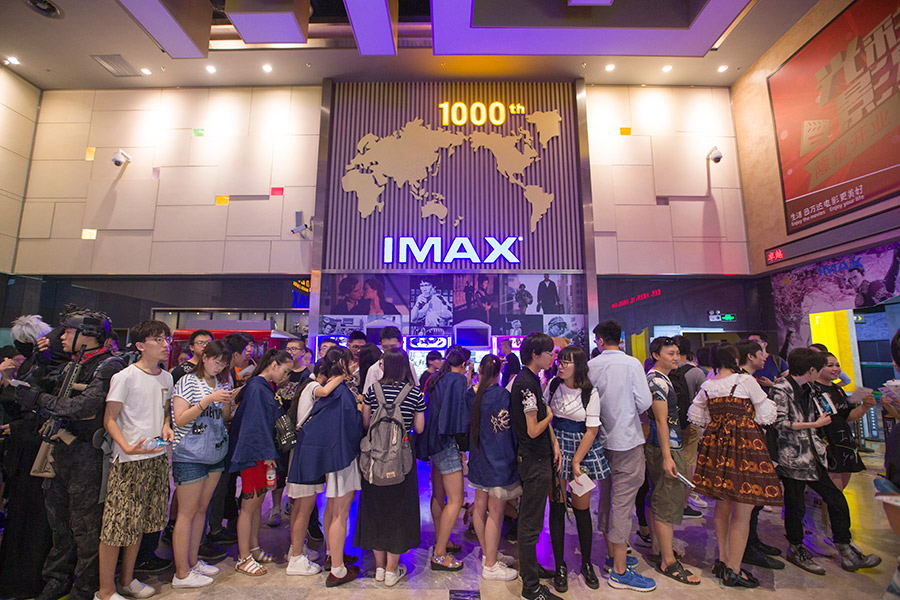Growing and challenged, film industry scripts evolution plot


LOS ANGELES - As China's growing film industry is closing in on the world's top box office, it is also experiencing upheavals and pains, Hollywood film industry insiders said.
The challenges include under-reporting of ticket sales, tax evasion, runaway star salaries, declining but still damaging piracy, creative inhibitions, among others.
"If China wants to continue growing a healthy entertainment industry, it must address these issues," said Tom Ara, the resident China expert at Greenberg Trauig LLP, one of America's top law firms.
China has worked hard to analyze and pattern its developing industry after Hollywood's globally successful 100-year-old system. Building a multi-billion dollar industry from scratch is no easy task when it is subject to an ultrasteep learning curve, vagaries of the global market, cultural disconnects, creative challenges, et cetera.
To start with, effective and trustworthy distribution channels are essential to build a robust and healthy film industry.
"Good distribution relies on genuine transparency and the accuracy of reported ticket sales. That's an essential part of forging trust in the industry," Ara told media in a recent interview.
He said he is hopeful that accurate reporting is on the rise, since it is an area Chinese film authorities have said they are committed to improving.
A well-orchestrated release, such as Universal China team's release of Jurassic World: Fallen Kingdom, into 50 percent of China's top theaters via prominent theater chains such as Cinema China Film and Wanda, is a good example of effective distribution that has netted producers a whopping $245 million upward in box- office returns in China.
"Universal has a great global team and China team," head of Perfect World Pictures, Rong Chen, said. Chen went on to say that Universal pulled out all the stops and utilized all media outlets that made sense to ensure a successful Jurassic World: Fallen Kingdom release in China. That is the kind of support that can make or break a release.
International attorney Jesse Weiner, who works at Yingke Law Firm and specializes in US-China deals, said: "Now that 80 percent of theater ticket sales take place online, it should be much easier to crack down on under-reported ticket sales, making the China market even more attractive to filmmakers."
One of the elements of the "Hollywoodization" of the Chinese film industry that Chinese filmmakers are increasingly leery of is the practice of kowtowing to "star power" and going to extreme lengths to cast big-ticket stars.
Casting heavyweight talent in a film is one of the basic tenets of successful Hollywood production. The bigger, the better. Big names tend to drive up ticket sales and producers are able to appeal to specific markets by casting local luminaries, such as Jackie Chan for the China market or Javier Bardiem for the Spanish-speaking market.
But, this can lead to substantive power shifts in the industry that could ultimately destabilize it. Increasingly, top stars, big-name directors and producers in China are demanding staggering multimillion dollar salaries for often a few days' or weeks' work.
Chinese film industry insiders worry that bloated star salaries will gobble up so much of a project's budget that the production value and film quality will suffer.
"Star salaries in China are way out of proportion," Xian Li, a prominent Hollywood studio executive, said. "The whole industry is concerned, because, at this rate, stars will end up controlling everything - deciding which projects get made and which don't.
"And if all the money goes to one or two stars, what's left to pay the rest of the talented crew and ensure high-quality productions?" she said.
This raises the question of salary caps for stars, a problem China is uniquely positioned to meet head on.
"In the United States, there's not much you can do to correct this imbalance, but in China, industry leaders are urging the government to put caps on star salaries to ensure balance and fairness," Li said.
But caps on salary will only be effective if the dodgy practice of luring top stars with dubious Yin-Yang contracts (dual contracts) is rooted out.
The Chinese public is up in arms against bloated star salaries after secret Yin-Yang contracts were leaked to microblogging Weibo by whistle-blowing Cui Yongyuan, a former TV host. It revealed excessive star demands that the public found distasteful.



































